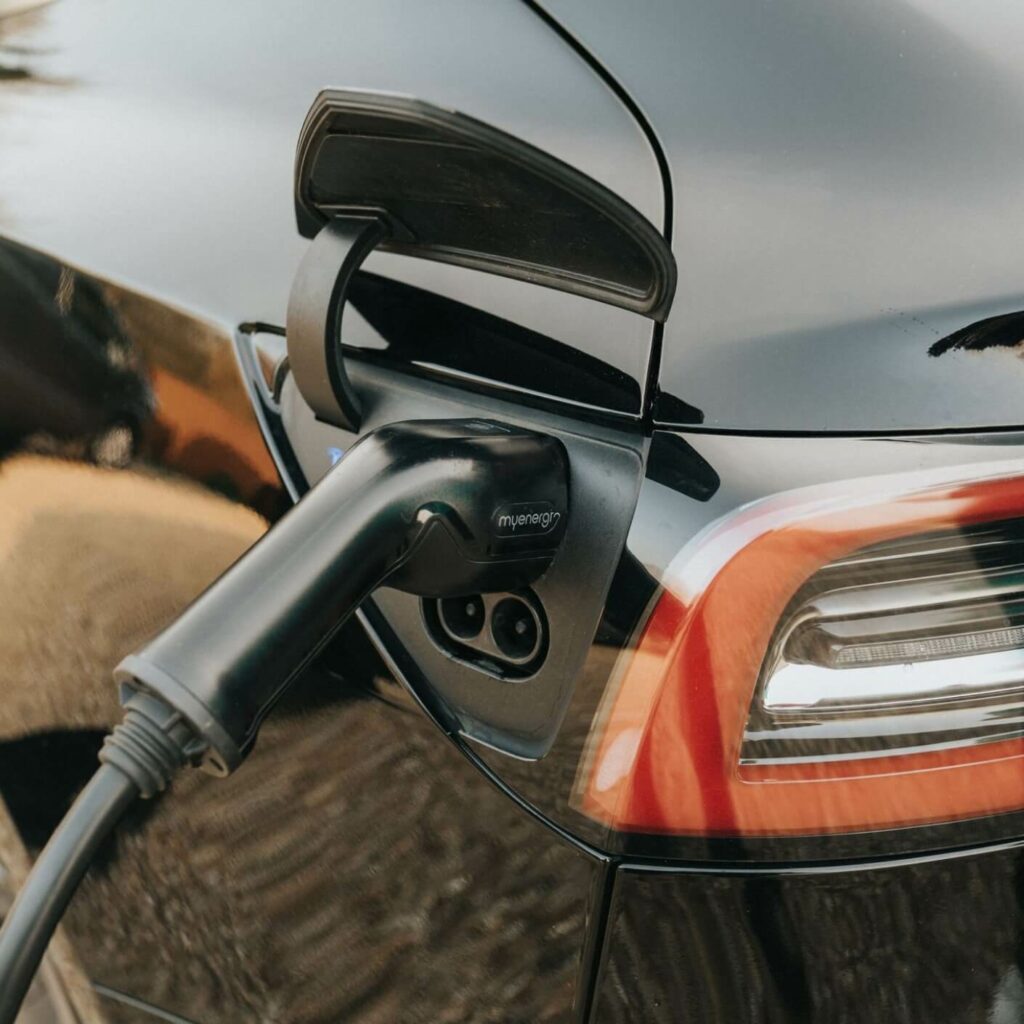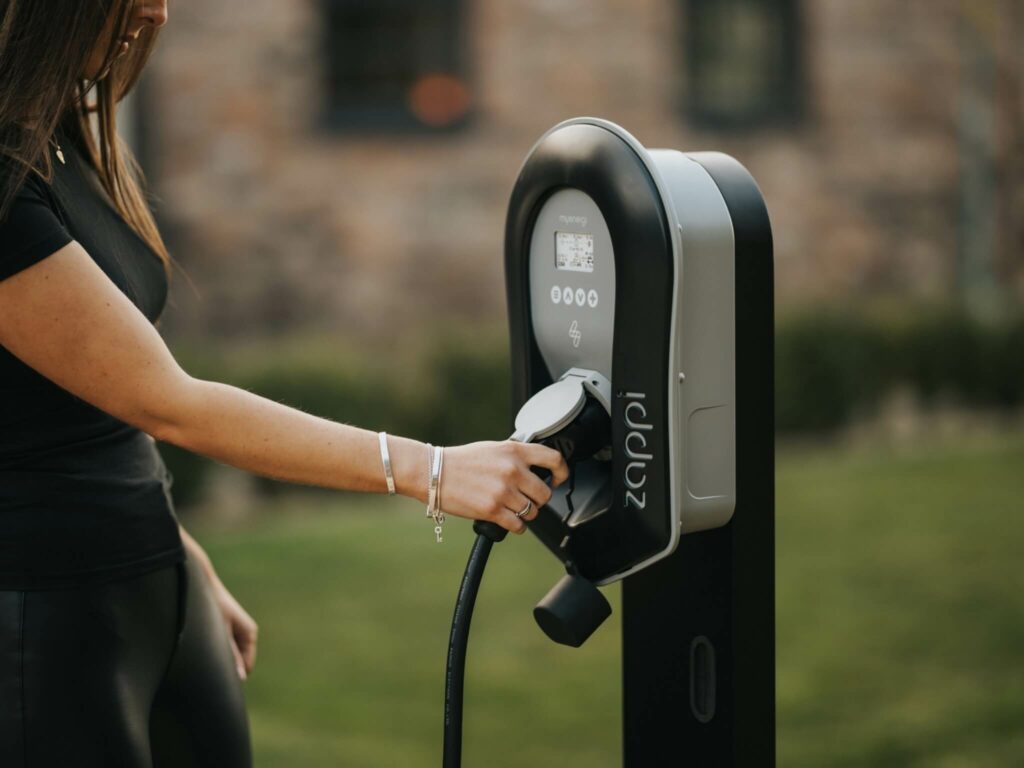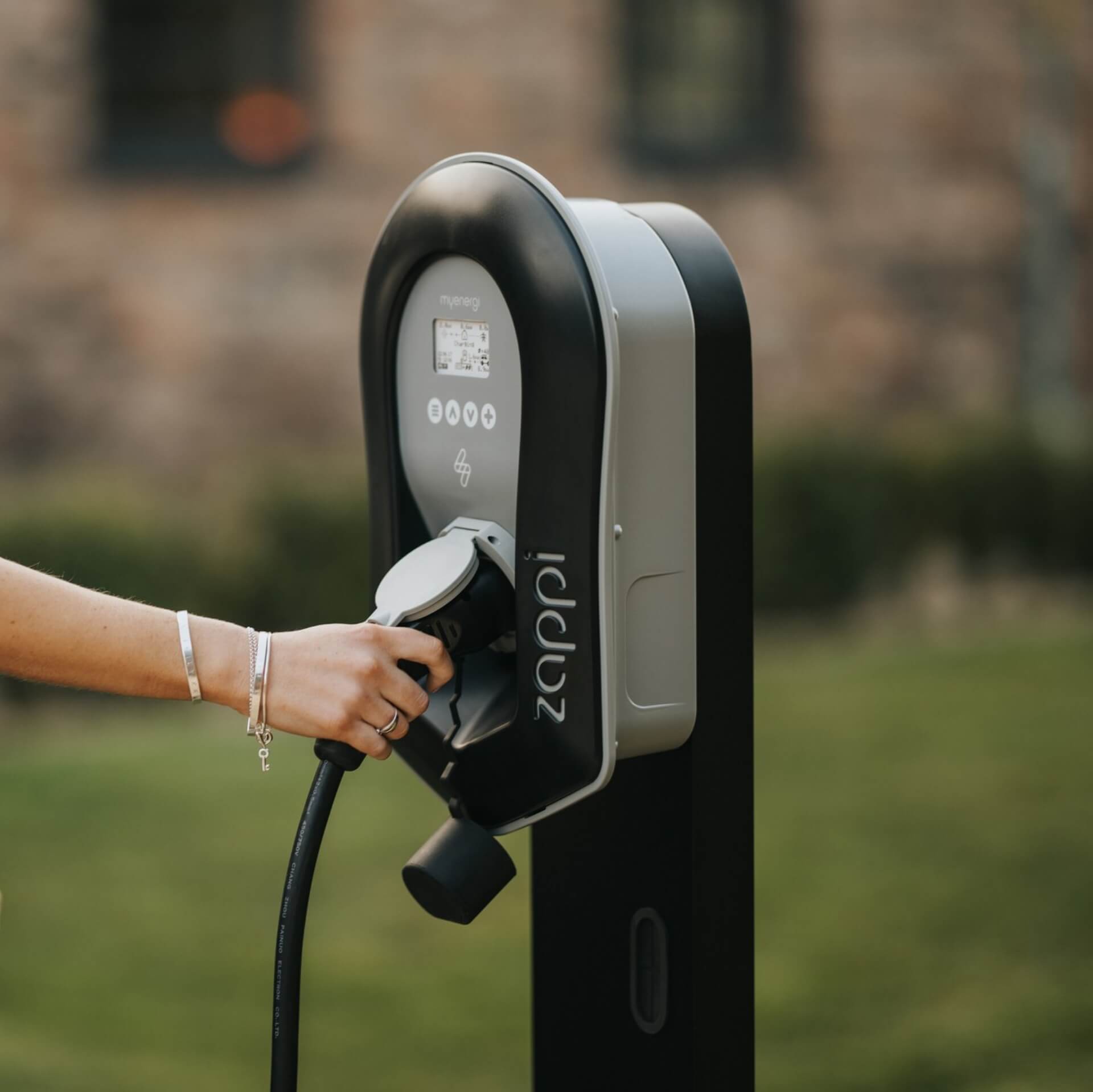The Ultimate Guide: Electric Car Charging At Home & All Things EV
Electric Car Charging At Home & All Things EV
The UK government’s recent announcement to ban the sales of petrol and diesel vehicles by 2030 is undoubtedly one of the bravest steps taken in recent times. This move will definitely go a long way in eliminating the harmful effects of greenhouse gases in the environment.
Understandably there will be questions and plenty of them. Written by a team of car experts, this guide will answer your questions about electric car charging at home and the top burning questions about your EV.
We researched the best selling electric vehicles and found the average electric car battery size to be 54kWh. This was based on forty of the best selling EV’s on the market in 2020/2021. Lots of the information available online tend to focus on one particular vehicle battery size, notably 60kWh, which although is a common battery size, it doesn’t necessarily match the average battery size across a wide array of vehicles.
Our research aims to provide a detailed overview of the electric car market as a whole, by using the laws of averages, instead of just the most popular size. Catering to the needs of those buying the smallest Smart EQ Fortwo city car, right up to the Tesla Model X.
The size of your vehicle’s battery is key to answering questions about vehicle range and how long it takes to charge. The weight of the vehicle also affects how far the car can go on a full charge. As a general rule, the larger the battery size in kWh, the further the vehicle will travel on a single charge. However, larger batteries will usually take longer to become fully charged and are often heavier.

What is an EV?
An EV is an abbreviation for Electric Vehicle. EV was a term adopted by the automotive industry to describe a car that runs on lithium-ion batteries.
Electric cars are fuelled by electricity which is stored in the cars internal rechargeable battery. The battery powers an electric motor which then turns the wheels when the pedal is engaged. Batteries have a storage capacity measured in kWh. Batteries use on average 0.25kWh per mile and need recharging regularly.
The benefits of electric cars are endless. As well as a cleaner and safer environment, better air quality and an overall move towards a greener future, they are also cheaper to run, less hassle to maintain, quieter and are driving companies to begin inventing, innovating and designing, thus, creating a whole new economic sector.

How much does it cost for electric car charging at home?
The average cost to fully charge an electric car from empty to full is £7.77.
The average monthly cost for electric car charging at home is £31.08. This is based on fully charging your EV, once per week.
EV owners can save an average of £57.48 per month on fuel savings alone, which is a total average saving of £689.76 per year. Also, electric vehicles don’t require oil & filter changes which cost an average of £100. EV’s are also exempt from paying Road Tax.
Where can I charge my EV?
The easiest and most efficient place to charge your vehicle using electric car charging at home, such as the . However, if you are running low whilst out on the road, there are over 12,000 public charge points available throughout the UK, with more being listed daily. Charging infrastructure is growing rapidly, especially since the announcement to ban the sale of fossil fuel cars from 2030.
Electric car charging at home is the easiest and most cost-effective way to charge. Most EV owners will top up their charge their vehicles overnight ready for the morning. Charging a vehicle every night will cost around £1.11 to maintain full charge and £7.77 to fully charge from empty.
It is not a necessity to charge your electric vehicle every night, though one of the many beauties of owning a domestic charge point, is your ability to do just that, which in turn saves you time, money and with less reliance on public chargers.
Not all electric vehicle chargers are the same, though most modern EV’s come with Type 2 sockets, which are compatible across all the variations of charger. For example, home chargers tend to be AC and charge at the rate of 7kWh. Public chargers are usually DC and charge at faster rates. There are also 22kWh chargers available, though not all vehicles can charge at these higher rates.
How long does it take to charge an electric car battery?
The time it takes to charge an electric car battery is dependent on the speed of the charger. Typically a public charger would take around 60 minutes to achieve a full charge, whereas a typical 7kWh home charger would take around 7hrs 42 minutes.
Many companies across the UK are offering free electric charging points as an incentive for customers to use their services, in the same way companies offer free parking. Like parking, there will likely to be time limits involved and a requirement to purchase or use the services.
Rapid chargers draw Direct Current (DC) at rates that are considerably faster than an average domestic charger which draws Accelerating Current (AC). AC is converted to DC before it hits the vehicle which slows down the overall process, whereas DC bypasses the conversion process, hence faster-charging speeds.
A granny charger (Type 1) is ultimately your cars spare charger, which allows you to charge your EV with any standard 3 Pin Socket, though as the name suggests, It charges at a far slower speed of 1.2kWh (10amps) compared to the usual 7kWh via an average home charging point.
How much does it cost to own an electric car?
The cost of electric car charging at home in the United Kingdom is dependent on numerous factors including the specification of the vehicle, size of the battery and how the car is driven. The cost also differs between domestic charging and public charging.
The price per kWh of electricity differs throughout the UK, however the average price per kWh sits at around 14.40p. The average sized battery across forty of the best selling EV’s is 54kWh: the average cost of a full charge at home is £7.77 which equates to an average of around 211 miles of range.
Electric cars are cheaper to maintain because there are significantly less mechanical moving parts that are susceptible to wear and tear. An oil & filter change is no longer required.
There are no hidden costs to owning an electric vehicle. The costs involved are as similarly clear to owning any other vehicle. You could argue the initial outlay is slightly higher due to the investment into a brand-new technology, and elements such as, the extra costs considered to install a charging point. Though, the long term savings for owning an electric car and electric car charging at home, far outweigh the initial outlay and you will soon see a return on your investment.
How do people with no driveway charge their electric cars?
There is lots of dialogue currently between the government and the EV industry, surrounding electric vehicle owners without driveways. If you have a car park or allotted parking bay, it is possible to have a charger located. If you rent the building or land, your tenant may have to think about EV infrastructure and regulations going forward. We recommend both renters and tenants keep an eye on the .gov website for updates to EV regulations.
Other current options are to use public chargers, workplace chargers or sharing schemes. It may also be worth contacting your local authority regarding infrastructure plans within your area. Schemes such as the ORSC are available in some areas.
The best way to have an electric charging point installed is to call a certified OLEV approved installer who will ensure your EV charger is installed to the highest recognised safety standards. In doing so, you can then claim the £350 OLEV grant towards both the charger and the installation.
Electric car range, and more!
The average distance an EV can travel is 211 miles. However, this is dependent on numerous factors including the size of the battery in kWh, the vehicles weight & design and ever-fluctuating factors such as the weather.
If you have never run out of petrol when driving, it is unlikely you will run out of battery. The concept of recharging is the same as refilling your vehicle. We’d recommend heading to the nearest charging station when your vehicle reaches between 15-20% capacity. Recharge on a public DC charger will take between 10-30 minutes dependent on your vehicles charging rates.
In the perfect conditions, an electric vehicle (EV) will use on average around 0.25 kWh per mile, though this figure will fluctuate slightly based on changes in rolling resistance, temperature, wind direction and daily weather conditions.
To maintain the longevity of a vehicle battery it is recommended that you maintain a minimum charge of at least 15-20%. The average distance between charge points in the UK is 6.1 miles meaning the bare minimum charge required would be 4%, though this is not recommended.
620 Miles is the official range of the Tesla Roadster and currently in the top spot for the longest range on an electric car. The average between the top 10 longest range vehicles is 342 miles.
211 miles is the average range of an EV, when comparing 40 of the best selling electric vehicles in 2020. Range is determined by many factors including vehicle weight and the kWh size of the battery.
It would cost £7.77 on average to fully charge an electric vehicle at home and most users would fully charge once per week. This is an average of £31.08 per month.
Why are electric vehicles better for the environment?
EV’s are much better for the environment. The movement towards electric vehicles will play a giant part in the worlds quest towards carbon neutral. Electric vehicles produce zero carbon emissions, whereas the average combustion engine releases between 8,000 – 10,000 grams of CO2 per gallon.
Electric cars use Lithium-Ion batteries with zero carbon emissions. Therefore, electric cars are certainly greener than cars which burn fossil fuels and release carbon into the atmosphere. Arguments made against the transition to electric vehicles, often have vested business interests in fossil fuels or heavy pollutant industries.
Electric cars don’t give off emissions directly. The positive changes in air quality during COVID 19 lockdown periods is living proof of just how much carbon is released into the atmosphere on a daily basis through fossil fuel vehicles. Indirect emissions may be produced during the manufacturing processes and through the generation of electricity, though switching to electric vehicles will drastically lower overall carbon emissions and improve air quality.
The introduction of time of use tariffs in particular, will encourage EV drivers to charge their vehicles during off peak periods when demand on the grid is lower. EV drivers can expect prices often as low as 0.03 – 0.05p per kWh during less demanding periods. Equally, expect higher rates during busier periods.
Electric vehicle batteries
15 years. An electric car battery will last anywhere between 8 – 22 years, dependent on numerous factors including weather conditions, charging habits and how the car is driven. Most manufacturers offer a 5 – 8 year warranty on their batteries.
A common question amongst EV newbies and early adopters alike. Conditioning an EV battery by maintaining a charge between 20% – 80% is becoming a popular practice amongst electric vehicle owners. This helps to prolong the batteries health and longevity by keeping the ions in a steady state of charge and elongating load cycles.
If you are leaving your electric car for a lengthy period of time without driving it, the car battery will discharge anywhere between 1-4% (0.50 to 3 kWh) a day dependent on the cars mode and particular power sapping features. Some of these features could be turned off to prevent higher rates of discharge though, we’d recommend referring to the owners manual for your particular vehicle. Equally, some vehicles go into sleep mode.
The ions in a battery don’t like to remain in a state of being under charged or equally overcharged. Therefore, keep a steady medium and decrease the charging range to between 20% – 80%, leaving 20% headroom either side, opposed to charging from 0% to 100% (Full Cycle). 20% becomes the new (0%) and 80% becomes the new (100%)
It is not possible to overcharge a vehicle battery. The charge process will cut off when the battery is at full capacity. If there are uncommon cases where batteries have overcharged, it is possibly due to either a fault with the battery and/or failed vehicle components relating to charge regulation.
Regenerative braking, more commonly known as ‘regen’ in the electric vehicle industry, is the transfer of kinetic energy to chemical energy which is stored in the vehicle battery. This energy can then be used to drive the vehicle.
Almost all batteries can be recycled, particularly lithium ion batteries which are found in electric vehicles, mobile phones and many other rechargeable devices.
Maintaining your EV
Electric cars are considered more reliable. Electric cars tend to score more highly in the reliability categories across numerous customer surveys, which is not surprising, as there is less that can go wrong in a battery powered vehicle. The most common fault in electric vehicles is with the battery itself, which is very easy to replace and usually under warranty with the vehicle manufacturer.
Electric cars brake down less often than those with internal combustion engines, due to the fewer mechanic moving parts involved, as well as being less prone to oil leakage and blockages. Battery power is a simpler process and far cleaner.
Fully electric cars do not need motor oil. Motor oil is used to lubricate the moving parts of an internal combustion engine for which electric vehicles don’t have. Instead, electric vehicles are powered by a rechargeable lithium ion battery.
Electric cars need servicing annually just like any other passenger vehicle. Brakes, windscreen wipers, seat belts and vehicle safety features still need servicing. However, savings can be made on oil changes, filters and combustion engine faults, which are no longer required.
Electric cars still need an MOT annually after 3 years from new. There is a slight variation in the testing stage In that EV’s don’t require an emissions test.
Electric cars are automatic in terms of the similarities in driver experience when compared with a manual vehicle i.e. no clutch or gearstick. However, when comparing an automatic combustion vehicle and an EV, the technologies are entirely different. Drivers will likely notice the difference in acceleration speeds when driving an EV and the quietness of the motor.
Electric cars don’t need a gearbox, clutch or gear stick because they don’t have mechanical gears. Electric vehicles only have one gear. The average RPM range of an electric motor is 20,000 rotations per minute opposed to an average of 7000 in a fuel combustion engine.
Financial Incentives & Grants for EV’s
As a vehicle owner and road user, you must still register this vehicle either on of off the road. However, road tax is charged based on carbon emissions and as electric vehicles emit zero carbon, EV’s cost £0.00 in road tax.
There are numerous grants available through the UK government for people and companies opting to switch to electric vehicles. The average driver in the UK can save £3000 on a new EV and £350 on a home charging point. OZEV grant ended on 1st April 2022.
Currently, both electric and hybrid vehicles are exempt from paying inner city congestion charges. However, from October 2021, only fully electric vehicles with zero emissions will be exempt from these charges.


